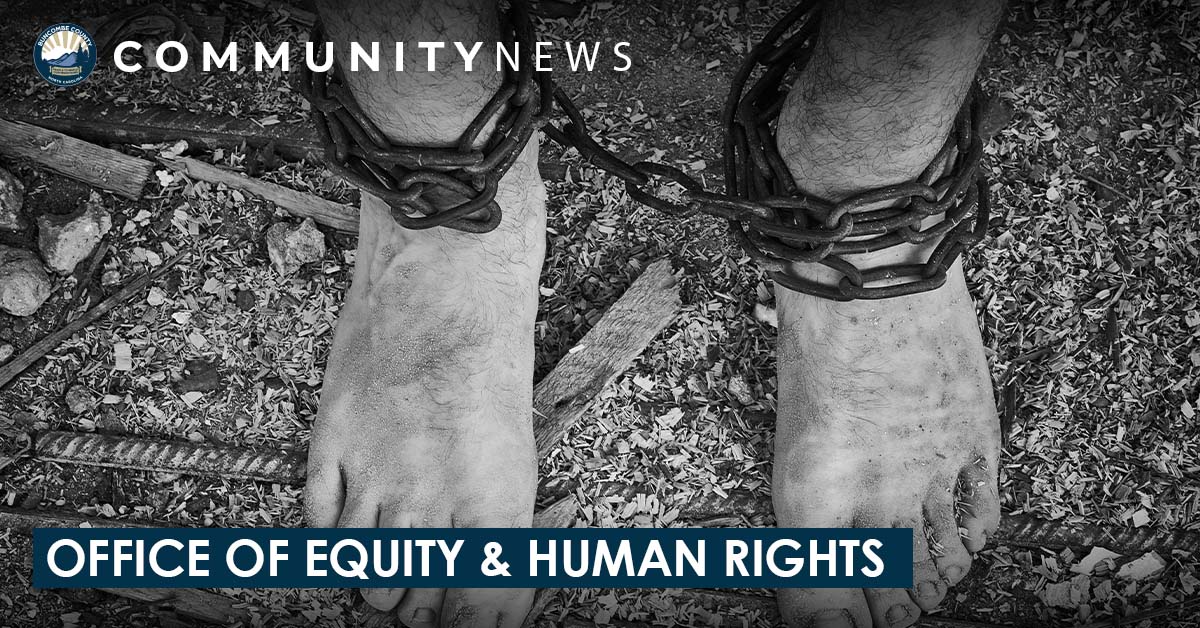
March 25, 2024, is International Day of Remembrance of the Victims of Slavery and the Transatlantic Slave Trade. The Day is observed with ceremonies and activities at United Nations Headquarters in New York and at United Nations offices around the world. This day is intended to inscribe the tragedy of the slave trade in the memory of all people. The day offers an opportunity for consideration of the historical causes, the methods, and the consequences of slavery and the transatlantic slave trade (UNESCO).
Buncombe County currently has an approximate population of 273,589. Black or African American individuals make up 6.1% of the population, making the number of Black or African American residents approximately 16,689 (US Census 2023). Many of these residents are descendants of Africans who were brought to the area during the time of slavery. In 1777, the first enslaved African people in Buncombe County were brought to the region, they were known as Jim and Sue and lived in the Hominy Valley area of Candler, NC (Urban News). In 1850, Buncombe County had 1,717 enslaved persons and 107 free Black residences, and 10 years later in 1860, the County had 1,907 enslaved persons and 283 enslavers. Lawyer, legislator, and planter, Nicholas W. Woodfin (1810-1876) owned the most enslaved people in Buncombe County, which numbered 122 (Buncombe County Special Collections).
The enslavement of over 13 million Africans during the Transatlantic Slave Trade was driven by the racist ideology that they were inferior because of the color of their skin. Countless families were torn apart. Scores of people lost their lives. Despite experiencing serious human rights violations, and intergenerational trauma over centuries, enslaved people persevered in their resilience, demonstrating courage and defiance against the conditions of enslavement, forced labor, and systemic violence and oppression (UNESCO). The racist legacy of the Transatlantic Slave Trade reverberates today in harmful prejudices and beliefs that are still being perpetuated and continue to impact people of African descent across the world. (UNSECO).
On this day let us remember those who suffered at the hands of slavery in our community and uplift the contributions the descendants of these enslaved people continue to make in Buncombe County and throughout the entire region of Western North Carolina.
More information about the Buncombe County Equity and Human Rights Office is available here. Employees and Members of the Community can file a discrimination complaint through the Equity and Human Rights Website or by contacting the Non-Discrimination Coordinator at NDO@buncombecounty.org. Residents have access to the Racial Equity Action Plan Dashboard here.
Sources